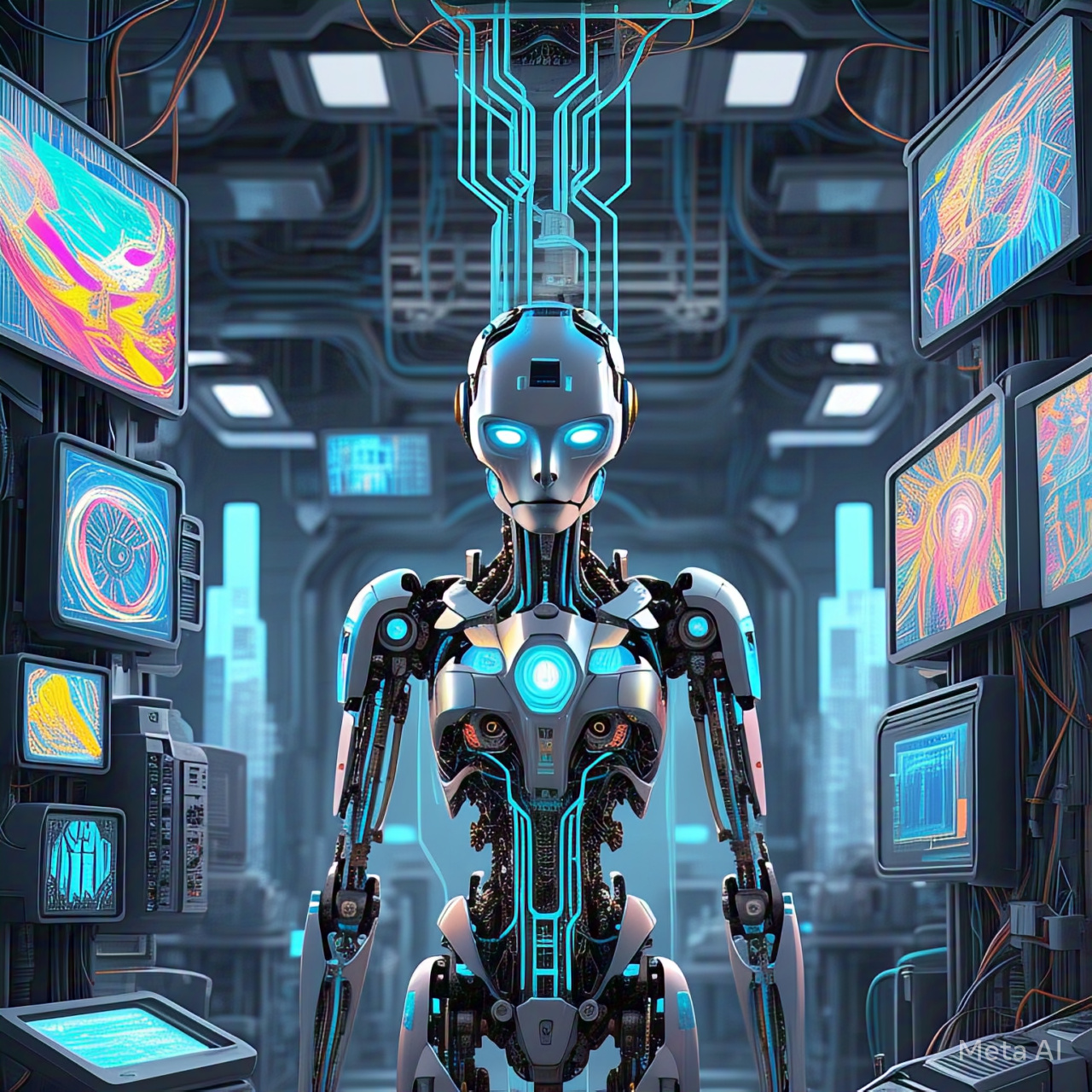Table of Contents
- Introduction
- AI in Communication
- AI in Smart Homes
- AI in Healthcare
- AI in Transportation
- AI in Finance and Banking
- AI in Education
- AI in Entertainment and Media
- Ethical and Privacy Concerns
- The Future of AI in Everyday Life
- Conclusion
- FAQs
Introduction
Artificial Intelligence (AI) is no longer a futuristic concept—it is an integral part of our daily lives. From voice assistants to smart homes, AI-driven healthcare, and personalized entertainment, AI is shaping the way we live, work, and interact with technology. This article explores how AI is transforming various aspects of everyday life, its benefits, challenges, and future implications.
AI in Communication
AI has revolutionized communication, making it faster, more efficient, and personalized.
Key Applications:
- Voice Assistants: Siri, Alexa, and Google Assistant use AI to understand and respond to human queries.
- Chatbots: Businesses use AI-powered chatbots for customer support, reducing response times.
- Email Filtering: AI helps filter spam and categorize emails for better organization.
- Language Translation: Google Translate and DeepL use AI to provide accurate translations in real time.
AI in Smart Homes
Smart home devices use AI to improve convenience, security, and energy efficiency.
AI-Powered Smart Home Technologies:
- Smart Thermostats: AI-driven devices like Nest adjust temperature settings based on user preferences.
- Smart Lighting: AI controls lighting to optimize energy use and enhance security.
- Home Security Systems: AI-enabled cameras and motion detectors enhance home safety.
- Smart Appliances: AI-powered refrigerators and washing machines improve household efficiency.
AI in Healthcare
AI is transforming healthcare by improving diagnostics, treatment, and patient care.
AI Applications in Healthcare:
- Medical Diagnostics: AI tools like IBM Watson assist doctors in diagnosing diseases.
- Drug Discovery: AI accelerates the development of new medicines.
- Telemedicine: AI-powered virtual health assistants provide remote medical consultations.
- Personalized Treatment: AI tailors treatments based on patient data.
AI in Transportation
AI is enhancing mobility, safety, and efficiency in the transportation sector.
AI’s Role in Transportation:
- Autonomous Vehicles: Self-driving cars from Tesla and Waymo use AI for navigation.
- Traffic Management: AI optimizes traffic flow and reduces congestion.
- Ride-Sharing Services: Uber and Lyft use AI for route optimization and fare calculation.
- Public Transport: AI improves scheduling and efficiency in buses and trains.
AI in Finance and Banking
AI is making banking and financial transactions more secure and efficient.
AI Applications in Finance:
- Fraud Detection: AI detects suspicious transactions to prevent fraud.
- Personalized Banking: AI-powered financial assistants help manage budgets.
- Algorithmic Trading: AI analyzes market trends for automated stock trading.
- Loan and Credit Assessment: AI improves credit scoring for faster loan approvals.
AI in Education
AI is transforming education through personalized learning and administrative automation.
AI in Education:
- Smart Tutoring Systems: AI-based tutors provide personalized learning experiences.
- Automated Grading: AI speeds up the assessment process.
- Virtual Classrooms: AI enhances remote learning experiences.
- Predictive Analytics: AI identifies students who need additional support.
AI in Entertainment and Media
AI is reshaping entertainment by providing personalized experiences and enhancing content creation.
AI’s Impact on Entertainment:
- Streaming Services: Netflix and Spotify use AI for content recommendations.
- AI-Generated Content: AI creates music, videos, and articles.
- Video Game AI: AI enhances NPC behavior and game realism.
- Deepfake Technology: AI is used for movie effects and digital actors.
Ethical and Privacy Concerns
Despite AI’s benefits, it also raises ethical and privacy issues.
Key Concerns:
- Data Privacy: AI collects vast amounts of personal data, raising security concerns.
- Bias in AI Algorithms: AI systems can inherit biases from training data.
- Job Displacement: AI automation may replace human jobs.
- AI Misuse: AI can be used for deepfakes, surveillance, and cyber threats.
The Future of AI in Everyday Life
AI’s future will bring even more advanced applications, including:
- General AI: AI systems that can think and reason like humans.
- AI-Human Collaboration: AI enhancing, rather than replacing, human jobs.
- Smart Cities: AI optimizing urban planning and resource management.
- AI in Space Exploration: AI assisting in planetary exploration and space missions.
Conclusion
AI has seamlessly integrated into our daily lives, making tasks more efficient and experiences more personalized. However, as AI continues to evolve, addressing ethical concerns and ensuring responsible AI development will be crucial to maximizing its benefits while minimizing risks.
FAQs
1. How does AI affect daily life?
AI powers smart assistants, personalized recommendations, smart homes, and automated financial services, making daily life more efficient.
2. Is AI replacing human jobs?
While AI automates certain tasks, it also creates new job opportunities and enhances human productivity.
3. What are the risks of AI?
AI risks include privacy violations, bias in algorithms, job displacement, and potential misuse in cybersecurity and surveillance.
4. How does AI impact healthcare?
AI improves diagnostics, drug discovery, robotic surgeries, and personalized treatments, enhancing healthcare efficiency.
5. What is the future of AI?
The future of AI includes advancements in General AI, AI-human collaboration, smart cities, and AI-driven innovations across various industries.
References
- McKinsey & Company. “The Role of AI in Everyday Life.” [Online].
- Harvard Business Review. “AI’s Impact on Society and Work.” [Online].
- Nature. “AI in Healthcare: Current Trends and Future Prospects.” [Online].





